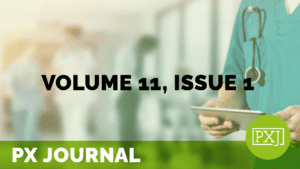Factors Influencing Patient Satisfaction with Zambia’s National Health Insurance Scheme: A Systematic Literature Review using Empirical Evidence from Nigeria and Ghana

Universal Health Coverage (UHC) has become important for African nations as they strive to provide equitable healthcare access to all citizens. Implementing a successful National Health Insurance Scheme (NHIS) is crucial to achieving this goal. In pursuit of achieving UHC, Zambia launched the NHIS in 2019 with the ambitious goal of reaching 100% coverage by 2021. Some of those enrolled had reported varying levels of satisfaction with the NHIS services. Understanding patient satisfaction with NHIS-provided services is therefore essential for improving its implementation and enhancing NHIS patient satisfaction. Following PRISMA guidelines, a systematic review of empirical studies from Nigeria and Ghana NHIS on patient satisfaction with NHIS-provided services was conducted to understand its factors. Searches on PubMed and Google Scholar identified 108 papers, of which 20 English peer-reviewed articles published between 2011 and 2023 from Nigeria and Ghana were selected for analysis providing insights into factors influencing NHIS patient satisfaction. These factors were analysed, categorised, and consolidated into shared patterns. Income, age, and education were common factors identified at the socio-demographic level. At the health facility level, waiting times, quality of care, staff attitude, dispensary (drugs), diagnostic services, and out-of-pocket were predominant factors identified. At an individual level, NHIS knowledge was a common factor. Finally, at the health insurance provider level, communication and feedback were a predominant factor. Strategies to increase NHIS patient satisfaction include tailoring NHIS programs to social demographics, reducing wait times, increasing drug supply, improving diagnostics services, providing healthcare staff training, educating patients, enhancing communication and feedback, and promoting NHIS literacy.
Related content
-
 Policy & Measurement
Policy & MeasurementAssociation Between Clinicians’ Average Patient Length of Stay and Patient Experience Scores
Objective: Given the current emphasis on patient-centered care, emergency physicians are seeking ways to improve patients’ experience in the emergency department (ED). Length of stay (LOS) in the ED has previously been associated with patient experience ratings, however there is limited literature on this relationship at the clinician level. The objective of this study was
Learn more -
 Policy & Measurement
Policy & MeasurementMeasuring Volunteer Impact
We know that our volunteers make a huge difference in our organizations every day…but how do you show that? It can be challenging to assign hard data to work done with the heart, but those statistics can help illustrate that impact in a more meaningful way to your audience.
Learn more -
 Policy & Measurement
Policy & MeasurementEnhancing Patient Care in FQHCs: The Essential Role of a Communication Plan
By Nikki Garcia, CPXP, Patient Experience Officer FQHCs are instrumental in providing essential healthcare services to underserved communities. Their mission to offer accessible and high-quality care drives their daily operations and influences their approach to addressing the specific needs of their patient populations. By employing effective communication strategies, FQHCs ensure they remain responsive to the
Learn more
